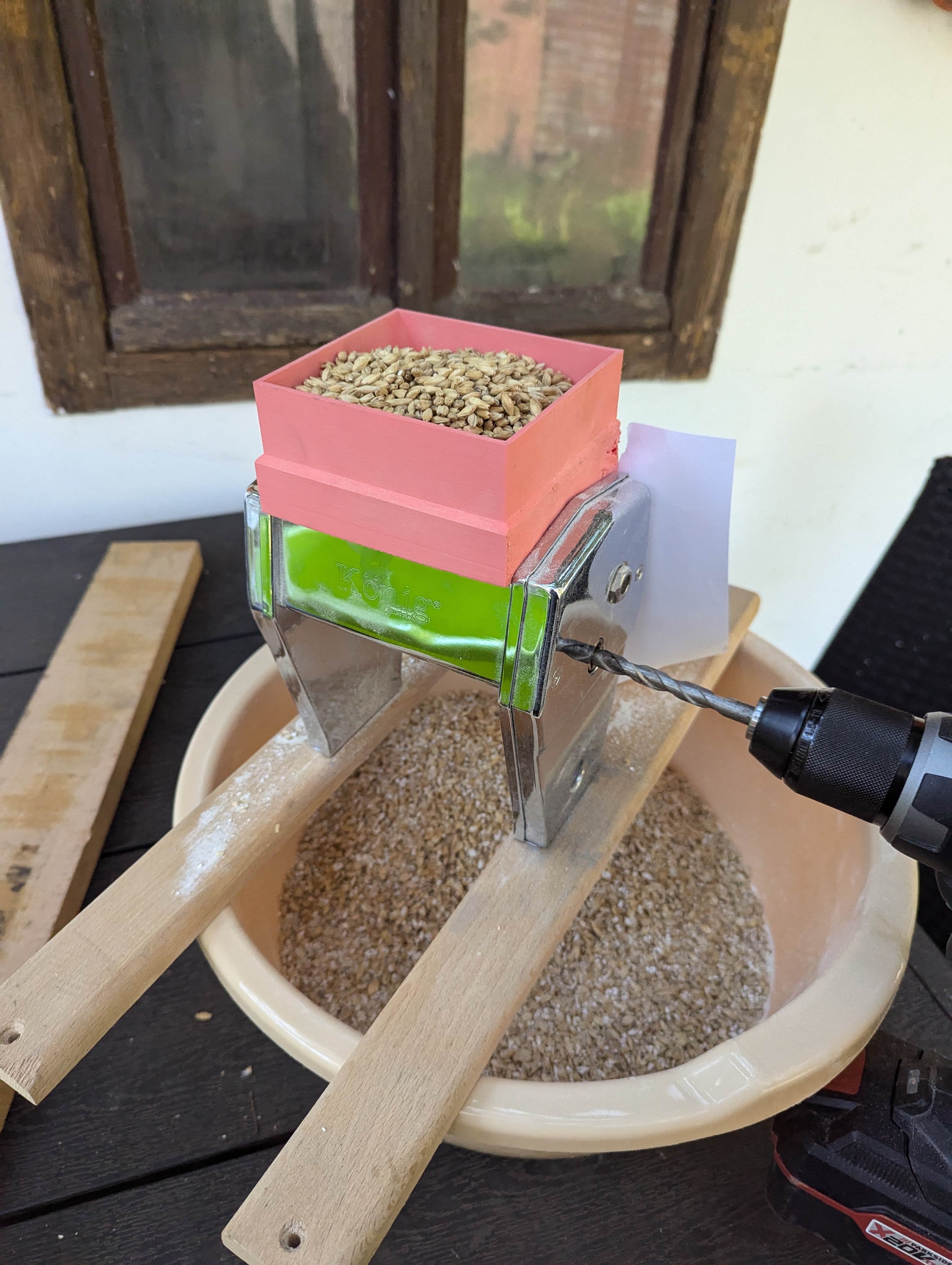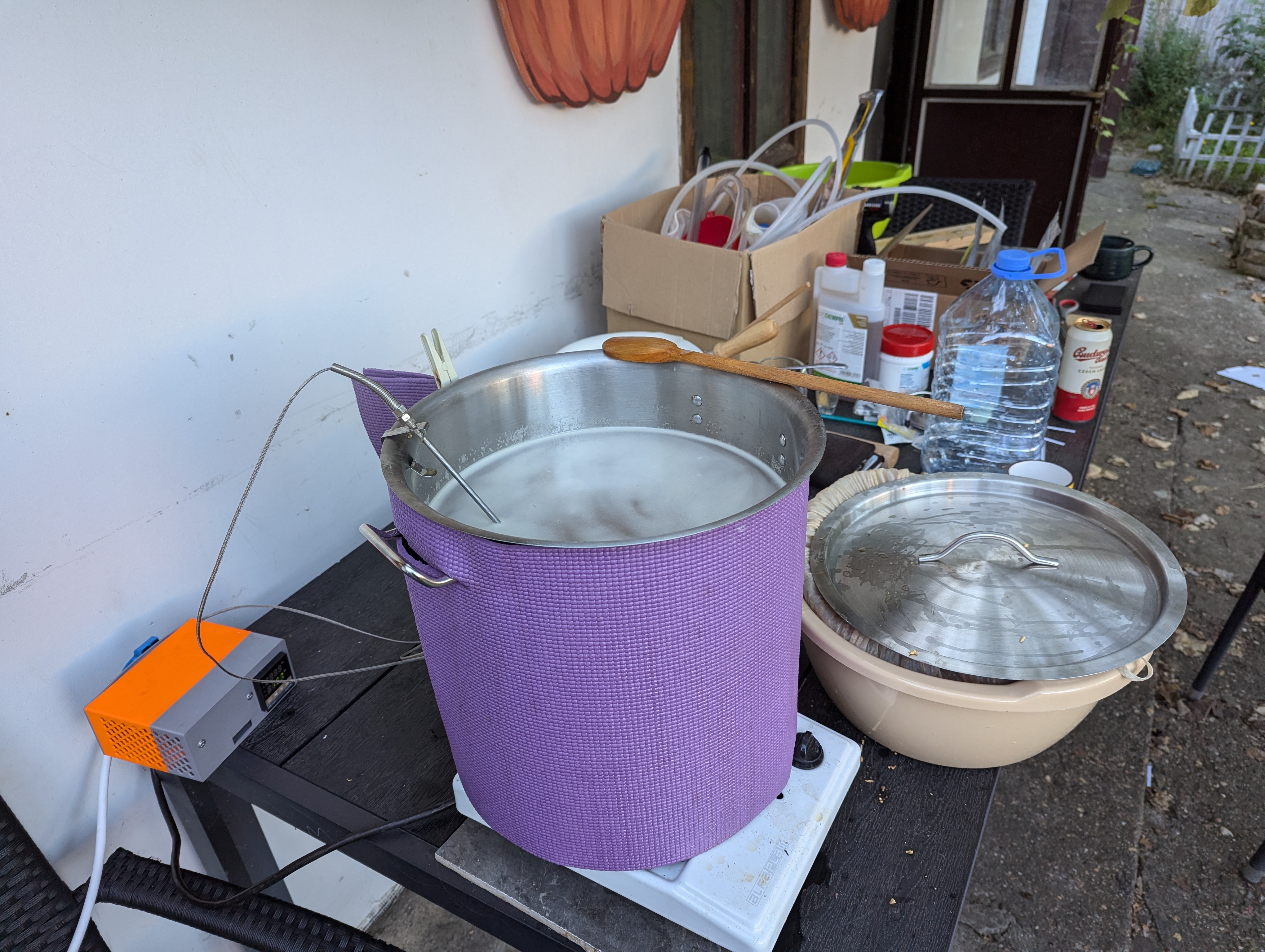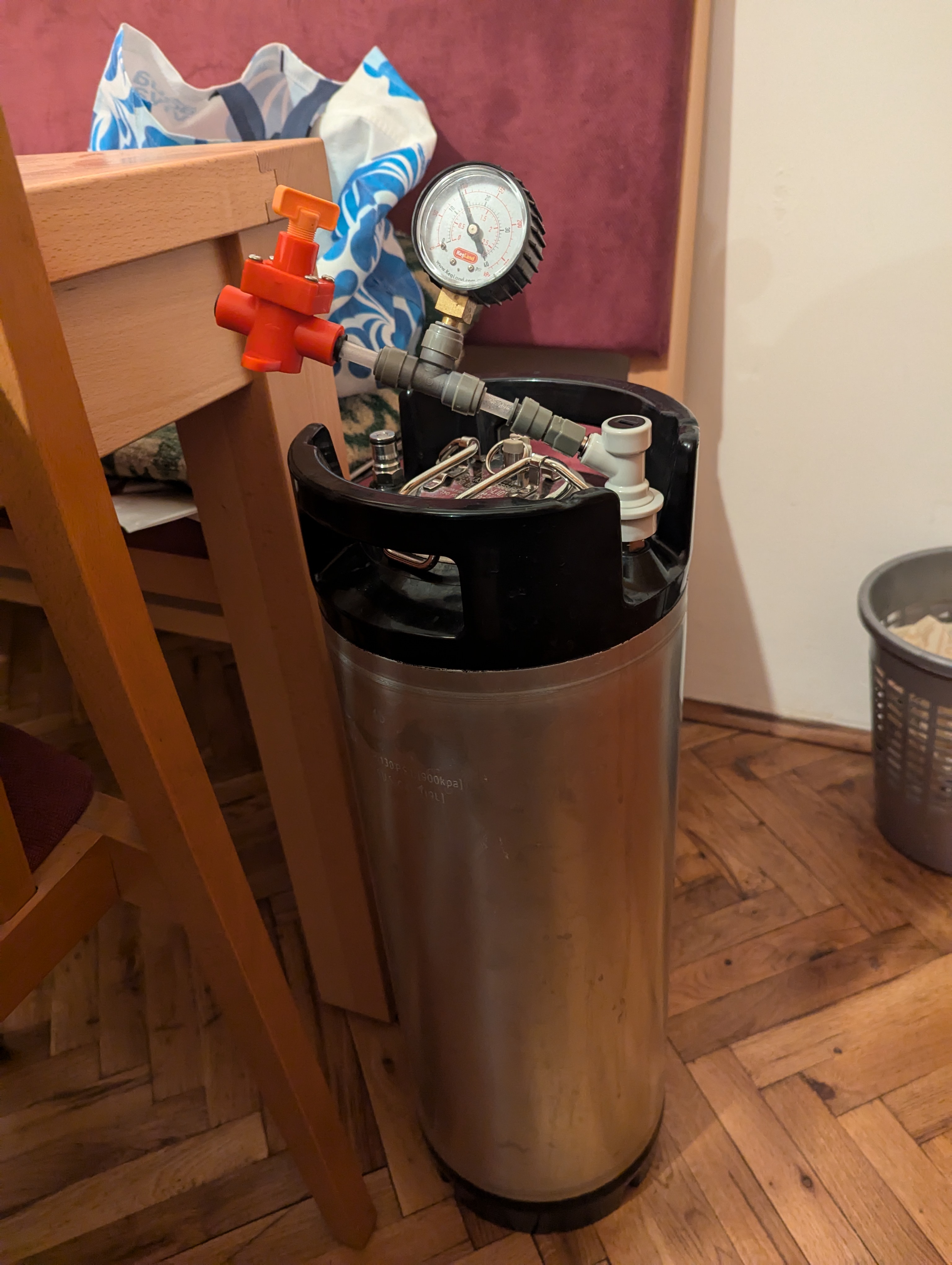Are they any close? Seems like they've been doing it for ages and they aren't close.
fluxx
In Futurama, they renamed it to Urectum :)
Agree, it didn't do anything to avoid the obstacle. A human could probably see it as an obstacle and try to swerve to the side, albeit not knowing what it is. Not saying it's possible to avoid, but some reaction would be made.
Thanks. The mill is utter trash though, which I modded as much as I could (the pink part is a 3d printed funnel), the wheels are not grippy enough, the knurling isn't deep enough and I end up having to push the grain with my fingers and it's very tedious and slow. I spent an hour milling a 5 kg of grain. It wasn't even finely ground. It's the next thing I'll upgrade, as soon as I find a good brand/model.
This looks like heat creep and/or clog. Check the hotend fan (not the part cooling one). If it starts happening after a while, it's either that or the nozzle has cooled too much. But if it happens with lower speed as well, then I wouldn't say it's that it's the latter. Try increasing the temperature. I'm printing mine at 270°C. Also I keep the bed at 70°C but that's not important. I've had issues like that with bad conducting nozzles (hardened/stainless steel) and thermistors not properly seated on the heat block. When this happens, pause the print, try feeding the filament by hand and see if there is any resistance (can you feel the clog). Try increasing the temperature, reduce the retraction distance to try and avoid it. I'm printing exclusively with petg for years now, never had issues like this due to moisture. You get more stringing, yes, but no failures on actual printing.
You're completely right, I forgot about that method. I've used it in the past, it works great and is far more controllable and safe.
True, I've seen many molten rolls of filament because of overly warm ovens. Make sure it doesn't go over 60C and you're good. Mine is good, has a little overshoot when heating up, but if you let it warm up first and then put the filament, it generally stays very close to 60C. I havent had problems. Other ovens - be careful. Food dehydrator is better, but if you don't have it, you may as well buy an actual filament dryer. Desicant beads didn't work for me. They do the trick of maintaining the dryness, but if you have ANY built up moisture in your filament, the beads won't do much.
A little mini torch, similar to a regular gas lighter also can work wonderfully.
As others have mentioned:
- Dry your filament. ~~Stick it in the oven for 2+ hours on minimal settings. If you have a fan in the oven, even better.~~ edit: use the printer bed, see comments below
- Tune your printer. Do a temperature tower with your dried filament. Lower temperatures might improve quality at the expense of lower layer adhesion. Do a flow calibration routine. Overextrusion can also have effects like this.
- Slow down the printing. Increase minimal layer time, which might have an effect. If it's original E3, it has relatively poor part cooling, which can be compensated by slowing things down.
Nothing wrong with Ender 3, if you thinker enough, you can get results as good as any other printer. But it may require tinkering. The model that you're printing is difficult with FDM printers of any kind. It has thin, delicate parts with steep overhangs. It can look better, but it's gonna be hard to achieve. Resin printers are definitely a better choice for this, but you use what you have.
Have you tried zed? Written in rust, has many extensions. I gave it a try, I quite like it. It's blazing fast. But I haven't tried on an old machine.
You could use just a regular 5 min epoxy. I frequently use CA glue, but depending on your use case, it might be too brittle.



You don't buy from TSMC, but from Intel. Also, AMD also uses TSMC, they didn't have such problems recently.